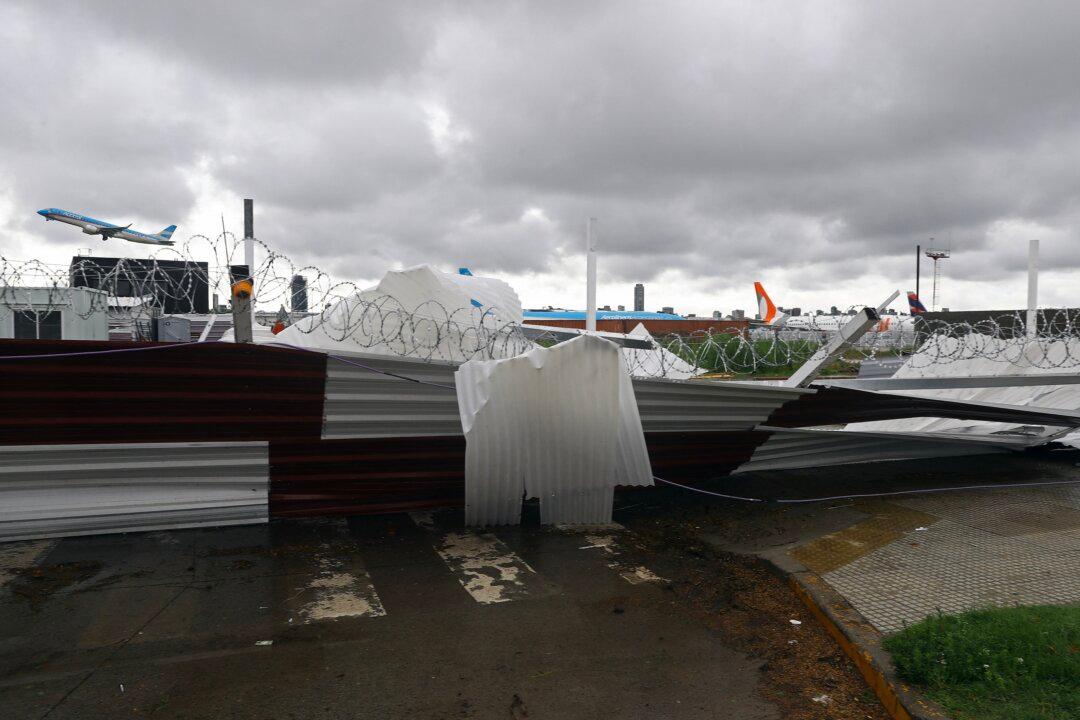BUENOS AIRES—A deadly summer storm over the weekend in Argentina has helped quench crops still reeling from a historic drought, a meteorologist said on Monday, although the storm paused operations at a key grains port.
The intense storm, which began on Saturday in the south of Buenos Aires province, left at least 13 people dead in the port town of Bahia Blanca before moving north and bringing much-needed rains to the country’s core agriculture zone in northern Buenos Aires and in the south and center of Santa Fe province.





